Rare glimpse inside the Orpheum: Local actor appeals for regeneration of historic theatre
The theatre has a fascinating history.
“I’d walked past so many times and heard so many stories and yet I was totally unprepared for the beauty I witnessed once I walked in,” reveals Thomas Camilleri, following a Facebook post in which he shared a number of photos of the interior of the little-used Orpheum theatre in Gzira.
The local actor, who was inside the theatre for rehearsals for the upcoming Orpheum Cabaret, captioned his post with an appeal for the theatre’s regeneration.
Intrigued by the theatre’s fading grandeur, I reached out to Tom to learn more. “It's in a sad state, but you can tell that it was a beautiful cinema in its heyday,” he tells me. “Just like the Rialto Cinema, we cannot let it fall into disrepair because that means it's only a partial collapse away from being declared unsafe, giving some unconscientious developer an excuse to demolish and erect even more flats,” the actor quips, adding that the space is perfect for anything from fairs, cabarets and gigs to art sessions and association meetings, “and the more its used, the more awareness will grow.”
He also put me in touch with Matthew Gatt, whose great grandfather built the Orpheum, and who gave some fantastic insight into the Orpheum’s past.
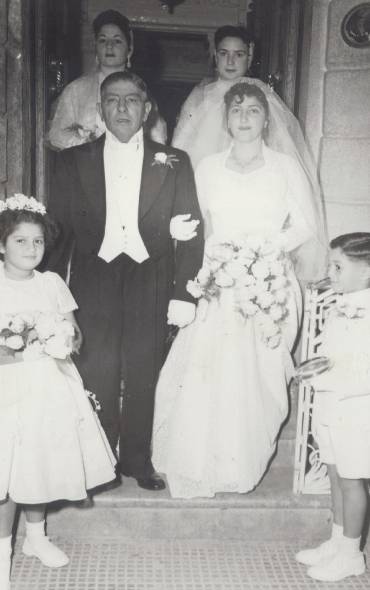
Felice Gerada at his daughter's wedding
The man who built the Orpheum
“The Orpheum was built by my great grandfather, and although I never met him, I grew up hearing stories about this building from my grandmother Connie. Nanna Connie was very fond of the theatre and would often tell me stories about those times, with the theatre playing a key part in her teenage years,” Matthew explains.
His great grandfather, Felice Gerada (known as Felix), was born in 1897. He left for the United States with his wife and infant son in 1920, where he lived for just under a decade. The family returned to Malta at the end of the 1920s, with five children in tow. On his return, Felix sought a seafront family home and purchased the summer residence at no. 143 The Strand, Gzira. “Like most returning emigres he returned to Malta with relative success and sought to build on this success by becoming a developer. During this period, he developed several houses and residential buildings in Gzira, but the most notable contribution was certainly the Orpheum,” Matthew continues.
A new icon
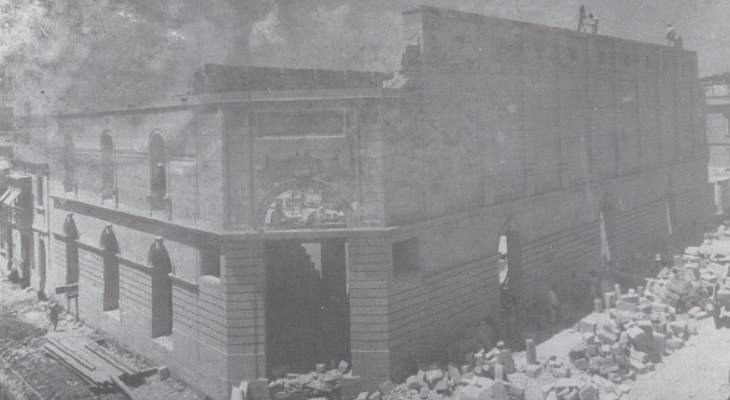
Matthew Gatt
In early 1930s, Felix purchased the land on which he would build the Orpheum from Marquis Desain. “This building would serve as a movie theatre marking a new business venture for Felix,” says Matthew, who explains that the cinema operated successfully for over a decade. Sadly though, “with ailing health and no interest by his only son of taking on the family business, Felix went on to sell the theatre in 1943 to the Pace brothers, who themselves had competing cinemas (including the Coliseum in Zachery Street Valletta).”
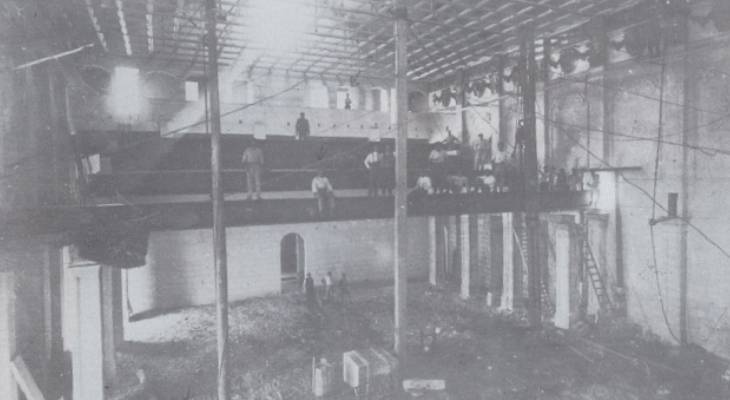
Matthew Gatt
Present day memories
“Aunty Julie, one of the two surviving children, says that she would go to the theatre regularly as a child and beside movies, they would also watch Moviton news to get updates about the war,” Matthew says, explaining that Julie, who was born in 1927, was 16 years old when the cinema was sold.
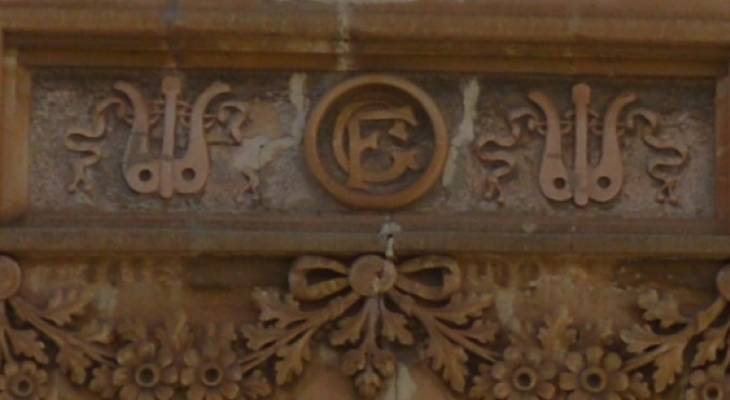
Matthew Gatt
“To this day, she remembers with pride how her father had his initials, FG, inscribed on the insignia at the entrance of the building,” he continues, adding that, to some extent, she says she will always feel that a part of the building will continue to belong to the family. “Of course, this is a reflection of the fondness of the memories it represents,” says Matthew, but interestingly enough, there is also an element of truth in this sentiment. “One of the conditions of sale in 1943 gave rise to a perpetual servitude allowing all heirs of Felix Gerada the right of access to four seats in the theatre for as long as it continued to exist as an entertainment venue,” so they’ll never have to miss a show!
Modern proposals
Ella Fleri Soler formed part of a group of architecture students who spent a year of their Master’s degree working on reuse proposals for the Orpheum in 2016. “We even turned the space into our design studio for a couple of months,” she says, affirming that “it's about time University work is given the exposure it deserves. It's a hugely underrated resource.”
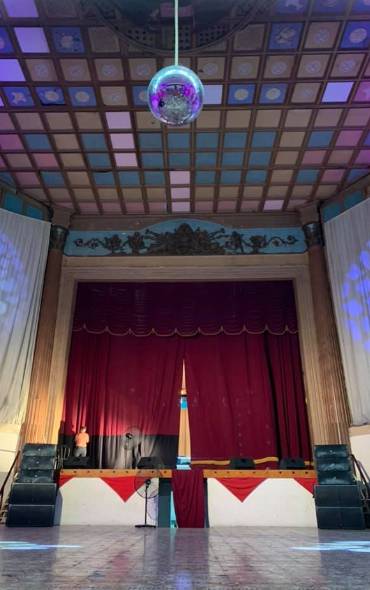
Thomas Camilleri
Speaking of her experience, Ella explains that in the scholastic year of 2015-2016, the Orpheum was introduced to a group of Master’s in Architecture students from the University of Malta as the site for a year-long research and design project.
“Many of us entered the majestic theatre for the first time that October, tip-toeing around the dark and dust covered spaces; from the echo-inducing foyer, to the hidden back stages and terraces. In the months that followed we peeled through the rich history of the building and the nostalgia-peppered stories of the people that came to know it,” she recalls, adding that the theatre became home to the students’ endless design and conservation debates.
“We dragged in borrowed desks, mini heaters, white boards and desk lamps – and set up shop for the winter; occasionally giving way to the still frequent tombla games that would take place there. As the year drew to a close, so did our proposals for the theatre’s new lease of life. From revamped performance spaces to museums and public gardens spilling inwards– our visions were varied and hopeful. But just as the theatre’s tales fade away into the darkness, they too now collect dust; morphing into the story of what Orpheum once was.”
What do you think of Gzira’s historic theatre? We’d love to see the Orpheum shine once again!